Advancing Biblical Studies: I. Decentring Whiteness
Published: Feb 2026
£90.00
The singular aim of this two-volume series is to advance biblical studies. Both volumes arise from a project initiated by the editor, Wongi Park, who asked invited contributors how to cultivate and sustain mutual dialogue, collaboration, and engagement across racial/ethnic, generational, and geographical boundaries?
The virtual convenings, held during the pandemic emergencies of 2020, led to a public-facing virtual symposium in 2022 where three critical tasks were undertaken:
- Decentre the monoracial history and methods of the field;
- Model a less traditional and hierarchical approach to biblical studies through dialogue and collaboration;
- Foreground a multiplicity of voices, perspectives, and starting points to diversify biblical studies.
Volume 1 pursues these aims of diagnosing the monoracial Eurocentrism of biblical studies by:
- Examining the problem of whiteness in the Eurocentric origins of the field;
- Reframing traditional methods, tools, and institutions of biblical studies;
- Tracing how whiteness is reproduced in texts, representations, and colonial legacies in biblical reception history.
A distinctive feature of this project is the radical act of gathering a multiracial coalition of Africana, Asian, Euro American, European, Indigenous, Islander, and Latinx scholars that models an alternative approach to biblical studies.
Volume 1 includes contributions in the following order: Wongi Park; Shawn Kelley; Susannah Heschel; M. Adrayael Tong; Luis Menéndez-Antuña; Hulisani Ramantswana; Joel Baden; Lisa J. Cleath; Halvor Moxnes; Ekaputra Tupamahu; Gerrie F. Snyman; Ludwig Beethoven J. Noya; Justin Michael Reed; Kenneth Ngwa; Greg Carey; Stephen D. Moore; Amy Lindeman Allen; Hannah M. Strømmen; Francisco Lozada Jr.
Advancing Biblical Studies: I. Decentring Whiteness
£90.00
The singular aim of this two-volume series is to advance biblical studies. Both volumes arise from a project initiated by the editor, Wongi Park, who asked invited contributors how to cultivate and sustain mutual dialogue, collaboration, and engagement across racial/ethnic, generational, and geographical boundaries?
The virtual convenings, held during the pandemic emergencies of 2020, led to a public-facing virtual symposium in 2022 where three critical tasks were undertaken:
- Decentre the monoracial history and methods of the field;
- Model a less traditional and hierarchical approach to biblical studies through dialogue and collaboration;
- Foreground a multiplicity of voices, perspectives, and starting points to diversify biblical studies.
Volume 1 pursues these aims of diagnosing the monoracial Eurocentrism of biblical studies by:
- Examining the problem of whiteness in the Eurocentric origins of the field;
- Reframing traditional methods, tools, and institutions of biblical studies;
- Tracing how whiteness is reproduced in texts, representations, and colonial legacies in biblical reception history.
A distinctive feature of this project is the radical act of gathering a multiracial coalition of Africana, Asian, Euro American, European, Indigenous, Islander, and Latinx scholars that models an alternative approach to biblical studies.
Volume 1 includes contributions in the following order: Wongi Park; Shawn Kelley; Susannah Heschel; M. Adrayael Tong; Luis Menéndez-Antuña; Hulisani Ramantswana; Joel Baden; Lisa J. Cleath; Halvor Moxnes; Ekaputra Tupamahu; Gerrie F. Snyman; Ludwig Beethoven J. Noya; Justin Michael Reed; Kenneth Ngwa; Greg Carey; Stephen D. Moore; Amy Lindeman Allen; Hannah M. Strømmen; Francisco Lozada Jr.
Korean Feminists in Conversation with the Bible, Church and Society
Published: Sep 2011
£50.00
This book offers scholars and students outside Korea some insight into what forms feminist biblical interpretation takes in Korea and what approaches Korean feminists adopt for dealing with the Bible in their writing and their professional lives.
The contributors to this book represent a wide spectrum of the Korean feminist Christian movement. They include university and seminary teachers, ministers, and field workers. This book is a product of their numerous meetings and discussions on the practical issues that define contemporary Korean women's lives. In it, the contributors reflect on the diverse situations modern Korean women have faced and continue to struggle with, among them, the traditional religious culture based on Confucianism, economic globalization, postcolonialism, the problems of migrant women labourers, and the trauma of being forced into sexual slavery for Japanese soldiers during World War II. They view these situations in the light of the lives and experiences of women in the Old and New Testaments, and they look to the Bible for resources for dealing with them.
This is socially engaged biblical interpretation. It goes beyond the academic study of the Bible to a wider engagement with the church and with Korean society.
The volume is published in cooperation with Ewha Institute for Women's Theological Studies.
Korean Feminists in Conversation with the Bible, Church and Society
£50.00
This book offers scholars and students outside Korea some insight into what forms feminist biblical interpretation takes in Korea and what approaches Korean feminists adopt for dealing with the Bible in their writing and their professional lives.
The contributors to this book represent a wide spectrum of the Korean feminist Christian movement. They include university and seminary teachers, ministers, and field workers. This book is a product of their numerous meetings and discussions on the practical issues that define contemporary Korean women's lives. In it, the contributors reflect on the diverse situations modern Korean women have faced and continue to struggle with, among them, the traditional religious culture based on Confucianism, economic globalization, postcolonialism, the problems of migrant women labourers, and the trauma of being forced into sexual slavery for Japanese soldiers during World War II. They view these situations in the light of the lives and experiences of women in the Old and New Testaments, and they look to the Bible for resources for dealing with them.
This is socially engaged biblical interpretation. It goes beyond the academic study of the Bible to a wider engagement with the church and with Korean society.
The volume is published in cooperation with Ewha Institute for Women's Theological Studies.
Between the Text and the Canvas: The Bible and Art in Dialogue
Published: Dec 2009
Price range: £17.50 through £45.00
Can a painting or illustration of a biblical scene help readers understand the Bible? Conversely, to what extent can knowledge about a biblical story help viewers appreciate an artist's portrayal of it? Interpreting biblical art is more than a matter of asking whether or not an artist 'got it right' or 'got it wrong'. This lively collection of essays seeks to establish a dialogue between the Bible and art that sees the biblical text and artistic representations of it as equal conversation partners. By looking at texts and canvases from different angles, the ten contributors to the volume reveal how biblical interpretation can shed important light on art, how art can contribute significantly to biblical interpretation and how each has something distinctive to offer to the interpretative task.
Contributions include J. Cheryl Exum on Solomon de Bray's Jael, Deborah and Barak, Hugh S. Pyper on depictions of the relationship between David and Jonathan, Martin O'Kane on the biblical Elijah and his visual afterlives, Sally Norris on Chagall's depiction of Ezekiel's chariot vision, Christina Bucher on the Song of Songs and the enclosed garden motif in fifteenth-century paintings and engravings of Mary and the infant Jesus, Ela Nutu on differences in the way female and male artists have represented Judith, Christine E. Joynes on visualizations of Salome's dance, Heidi J. Hornik on Michele Tosini's Nativity,Way to Calvary and Crucifixion as visual narratives, Kelly J. Baker on Henry Ossawa Tanner's The Annunciation and Nicodemus, and Christopher Rowland on William Blake and the New Testament.
Between the Text and the Canvas: The Bible and Art in Dialogue
Price range: £17.50 through £45.00
Can a painting or illustration of a biblical scene help readers understand the Bible? Conversely, to what extent can knowledge about a biblical story help viewers appreciate an artist's portrayal of it? Interpreting biblical art is more than a matter of asking whether or not an artist 'got it right' or 'got it wrong'. This lively collection of essays seeks to establish a dialogue between the Bible and art that sees the biblical text and artistic representations of it as equal conversation partners. By looking at texts and canvases from different angles, the ten contributors to the volume reveal how biblical interpretation can shed important light on art, how art can contribute significantly to biblical interpretation and how each has something distinctive to offer to the interpretative task.
Contributions include J. Cheryl Exum on Solomon de Bray's Jael, Deborah and Barak, Hugh S. Pyper on depictions of the relationship between David and Jonathan, Martin O'Kane on the biblical Elijah and his visual afterlives, Sally Norris on Chagall's depiction of Ezekiel's chariot vision, Christina Bucher on the Song of Songs and the enclosed garden motif in fifteenth-century paintings and engravings of Mary and the infant Jesus, Ela Nutu on differences in the way female and male artists have represented Judith, Christine E. Joynes on visualizations of Salome's dance, Heidi J. Hornik on Michele Tosini's Nativity,Way to Calvary and Crucifixion as visual narratives, Kelly J. Baker on Henry Ossawa Tanner's The Annunciation and Nicodemus, and Christopher Rowland on William Blake and the New Testament.
From the Margins 2: Women of the New Testament and Their Afterlives
Published: Oct 2009
£60.00
Despite half a century of biblical interpretation that has sought to put women back on the agenda of ancient texts (written largely if not wholly by men), the dominant threads of narrative and doctrine have —with the notable exception of Mary the mother of Jesus —been focused on the lives and actions of men. Reception history tells a different story. It is not the case that there is a recovery of the lives of women hidden behind the pages of the New Testament, for our information remains as sparse and tantalizing as ever. Rather, the study of biblical women's 'afterlives' allows the imaginative engagement of artists and writers to broaden the horizon of interpretative expectations. Whether it is through historical imagination or the grasp of different portrayals of familiar biblical women (like Mary the mother of Jesus or Mary Magdalene), the creative genius of these interpreters, neglected by mainstream biblical textual scholars, only underlines the importance of the biblical women, viewed in the light of their afterlives.
This volume has its origins in a project entitled 'Biblical Women and their Afterlives' conceived and developed by the Centre for Reception History of the Bible at the University of Oxford and organized together with colleagues from the Luce Program in Scripture and Literary Arts at Boston University, USA. This project resulted not only in the present interdisciplinary collection of 21 essays (with their 66 illustrations) but also its companion volume From the Margins 1: Women of the Hebrew Bible and their Afterlives , edited by Peter S. Hawkins and Lesleigh Cushing Stahlberg.
The present volume includes the specially commissioned poem 'To Cast a Stone' by the acclaimed Irish poet John F. Deane.
From the Margins 2: Women of the New Testament and Their Afterlives
£60.00
Despite half a century of biblical interpretation that has sought to put women back on the agenda of ancient texts (written largely if not wholly by men), the dominant threads of narrative and doctrine have —with the notable exception of Mary the mother of Jesus —been focused on the lives and actions of men. Reception history tells a different story. It is not the case that there is a recovery of the lives of women hidden behind the pages of the New Testament, for our information remains as sparse and tantalizing as ever. Rather, the study of biblical women's 'afterlives' allows the imaginative engagement of artists and writers to broaden the horizon of interpretative expectations. Whether it is through historical imagination or the grasp of different portrayals of familiar biblical women (like Mary the mother of Jesus or Mary Magdalene), the creative genius of these interpreters, neglected by mainstream biblical textual scholars, only underlines the importance of the biblical women, viewed in the light of their afterlives.
This volume has its origins in a project entitled 'Biblical Women and their Afterlives' conceived and developed by the Centre for Reception History of the Bible at the University of Oxford and organized together with colleagues from the Luce Program in Scripture and Literary Arts at Boston University, USA. This project resulted not only in the present interdisciplinary collection of 21 essays (with their 66 illustrations) but also its companion volume From the Margins 1: Women of the Hebrew Bible and their Afterlives , edited by Peter S. Hawkins and Lesleigh Cushing Stahlberg.
The present volume includes the specially commissioned poem 'To Cast a Stone' by the acclaimed Irish poet John F. Deane.
Longing for Egypt and Other Unexpected Biblical Tales
Published: Aug 2008
£50.00
Readers of all persuasions have a tendency to privilege simple interpretations over complex, unsettling, readings. The more fraught the issue, the more often we find in the history of interpretation that a simple reading has been generated that masks its complexity.
'Longing for Egypt and Other Unexpected Biblical Tales' explores seven cases of textual complexity masked by simple readings. One chapter uncovers a counter-intuitive longing for Egypt alongside the Exodus account of liberation from persecution. Another shows how what appears to be a critical attitude in the Bible towards other gods may reflect inner-Israelite tensions rather than some principled antipathy toward others.
Yet another confronts the praise of God as a perfect king with the use of the language of divine kingship as a vehicle for constructive criticism. All seven chapters share a focus on the formation of identity. Arguably the Bible's most sensitive subject, for its authors and for present-day readers, this topic has generated a host of simple readings that conceal immense complexity.
Longing for Egypt and Other Unexpected Biblical Tales
£50.00
Readers of all persuasions have a tendency to privilege simple interpretations over complex, unsettling, readings. The more fraught the issue, the more often we find in the history of interpretation that a simple reading has been generated that masks its complexity.
'Longing for Egypt and Other Unexpected Biblical Tales' explores seven cases of textual complexity masked by simple readings. One chapter uncovers a counter-intuitive longing for Egypt alongside the Exodus account of liberation from persecution. Another shows how what appears to be a critical attitude in the Bible towards other gods may reflect inner-Israelite tensions rather than some principled antipathy toward others.
Yet another confronts the praise of God as a perfect king with the use of the language of divine kingship as a vehicle for constructive criticism. All seven chapters share a focus on the formation of identity. Arguably the Bible's most sensitive subject, for its authors and for present-day readers, this topic has generated a host of simple readings that conceal immense complexity.
Voyages in Uncharted Waters: Essays on the Theory and Practice of Biblical Interpretation in Honor of David Jobling
Published: Oct 2006
£50.00
This volume honours the work of David Jobling, the distinguished Professor of Old Testament Language and Literature at St Andrew's College, Saskatoon, Canada. Jobling has been noted for his adventurous forays into the theory and practice of biblical interpretation, especially of the Hebrew Bible, and for his interdisciplinary bridge-building. The volume is divided into three sections corresponding to three of Jobling's principal interests, each section being prefaced with an introduction to his work in that area by the editors.
Section 1 is on Post-Structuralism, with contributions by Gary Phillips, George Aichele, Francis Landy, Robert Culley and Matthew Mitchell. In Section 2, on Ideological Criticism, the authors are Roland Boer, David Gunn, Volker Greifenhagen and Tina Pippin. Section 3, on Global Readings, contains papers by Gerald West, Jione Havea, Ed Conrad and Norman Habel.
The Festschrift concludes with personal tributes by Christopher Lind and Norman Gottwald.
Voyages in Uncharted Waters: Essays on the Theory and Practice of Biblical Interpretation in Honor of David Jobling
£50.00
This volume honours the work of David Jobling, the distinguished Professor of Old Testament Language and Literature at St Andrew's College, Saskatoon, Canada. Jobling has been noted for his adventurous forays into the theory and practice of biblical interpretation, especially of the Hebrew Bible, and for his interdisciplinary bridge-building. The volume is divided into three sections corresponding to three of Jobling's principal interests, each section being prefaced with an introduction to his work in that area by the editors.
Section 1 is on Post-Structuralism, with contributions by Gary Phillips, George Aichele, Francis Landy, Robert Culley and Matthew Mitchell. In Section 2, on Ideological Criticism, the authors are Roland Boer, David Gunn, Volker Greifenhagen and Tina Pippin. Section 3, on Global Readings, contains papers by Gerald West, Jione Havea, Ed Conrad and Norman Habel.
The Festschrift concludes with personal tributes by Christopher Lind and Norman Gottwald.
Wrestling with Textual Violence: The Jephthah Narrative in Antiquity and Modernity
Published: Oct 2006
£50.00
A story of a judge who sacrifices his virgin daughter is of course an issue both in ethics and in gender studies. Such is the biblical narrative of Jephthah. Sjöberg undertakes a comparative analysis of six different versions of the Jephthah narrative: the biblical tale in the book of Judges, the Jewish telling in Pseudo-Philo's Liber antiquitatum biblicarum (first century CE), Josephus's report in his Jewish Antiquities (also first century CE), Handel's oratorio Jephtha (1751), the British author E.L. Grant Watson's novel A Mighty Man of Valour (1939), set in Australia, and the short story by the Israeli novelist Amos Oz, 'Upon This Evil Earth' (1981).
Five main interpretative strategies are uncovered in this remarkable analysis: condemnation, identification, glorification, alienation and censure. Each strategy affects in different ways the reader's assessment of power relations in the story and the reader's own willingness to change.
In a final move, Sjöberg embarks on a critical discussion of the programmes of Elisabeth Schüssler Fiorenza and Daniel Patte for an ethics of biblical interpretation. Sjšberg advocates an interpretative pluralism, arguing that biblical studies should stand in the service of the general public.
Wrestling with Textual Violence: The Jephthah Narrative in Antiquity and Modernity
£50.00
A story of a judge who sacrifices his virgin daughter is of course an issue both in ethics and in gender studies. Such is the biblical narrative of Jephthah. Sjöberg undertakes a comparative analysis of six different versions of the Jephthah narrative: the biblical tale in the book of Judges, the Jewish telling in Pseudo-Philo's Liber antiquitatum biblicarum (first century CE), Josephus's report in his Jewish Antiquities (also first century CE), Handel's oratorio Jephtha (1751), the British author E.L. Grant Watson's novel A Mighty Man of Valour (1939), set in Australia, and the short story by the Israeli novelist Amos Oz, 'Upon This Evil Earth' (1981).
Five main interpretative strategies are uncovered in this remarkable analysis: condemnation, identification, glorification, alienation and censure. Each strategy affects in different ways the reader's assessment of power relations in the story and the reader's own willingness to change.
In a final move, Sjöberg embarks on a critical discussion of the programmes of Elisabeth Schüssler Fiorenza and Daniel Patte for an ethics of biblical interpretation. Sjšberg advocates an interpretative pluralism, arguing that biblical studies should stand in the service of the general public.
What Does Eve Do to Help? And Other Readerly Questions to the Old Testament
£50.00
Readerly questions are raised when readers are explicitly and programmatically brought into the process of interpreting texts. Traditionally, the reader and readerly interest and identities have been screened out when we have set about interpreting texts, and we have set our sights on attaining an interpretation that should be as objective as possible.
Things are rather different now. Not only is quest for objective interpretation seen as chimaera, but the rewards of unabashed readerly interpretations that foreground the process of reading and the context of the reader have now been shown to be very well worth seeking. That reader-response approach characterizes this collection of six essays, prefaced by an introduction to reader-response criticism.
The essays for the most part read in their original form to meetings of the Society of Biblical Literature, are: What Does Eve Do To Help? and other Irredeemably Androcentric Orientations in Genesis 1-3; What Happens in Genesis; The Ancestor in Danger: But Not the Same Danger; The Old Testament Histories: A Reader's Guide; Deconstructing the Book of Job; and Nehemiah Memoir: The perils of Autobiography.
This volume is a reprint of the original 1990 edition.
What Does Eve Do to Help? And Other Readerly Questions to the Old Testament
£50.00
Readerly questions are raised when readers are explicitly and programmatically brought into the process of interpreting texts. Traditionally, the reader and readerly interest and identities have been screened out when we have set about interpreting texts, and we have set our sights on attaining an interpretation that should be as objective as possible.
Things are rather different now. Not only is quest for objective interpretation seen as chimaera, but the rewards of unabashed readerly interpretations that foreground the process of reading and the context of the reader have now been shown to be very well worth seeking. That reader-response approach characterizes this collection of six essays, prefaced by an introduction to reader-response criticism.
The essays for the most part read in their original form to meetings of the Society of Biblical Literature, are: What Does Eve Do To Help? and other Irredeemably Androcentric Orientations in Genesis 1-3; What Happens in Genesis; The Ancestor in Danger: But Not the Same Danger; The Old Testament Histories: A Reader's Guide; Deconstructing the Book of Job; and Nehemiah Memoir: The perils of Autobiography.
This volume is a reprint of the original 1990 edition.

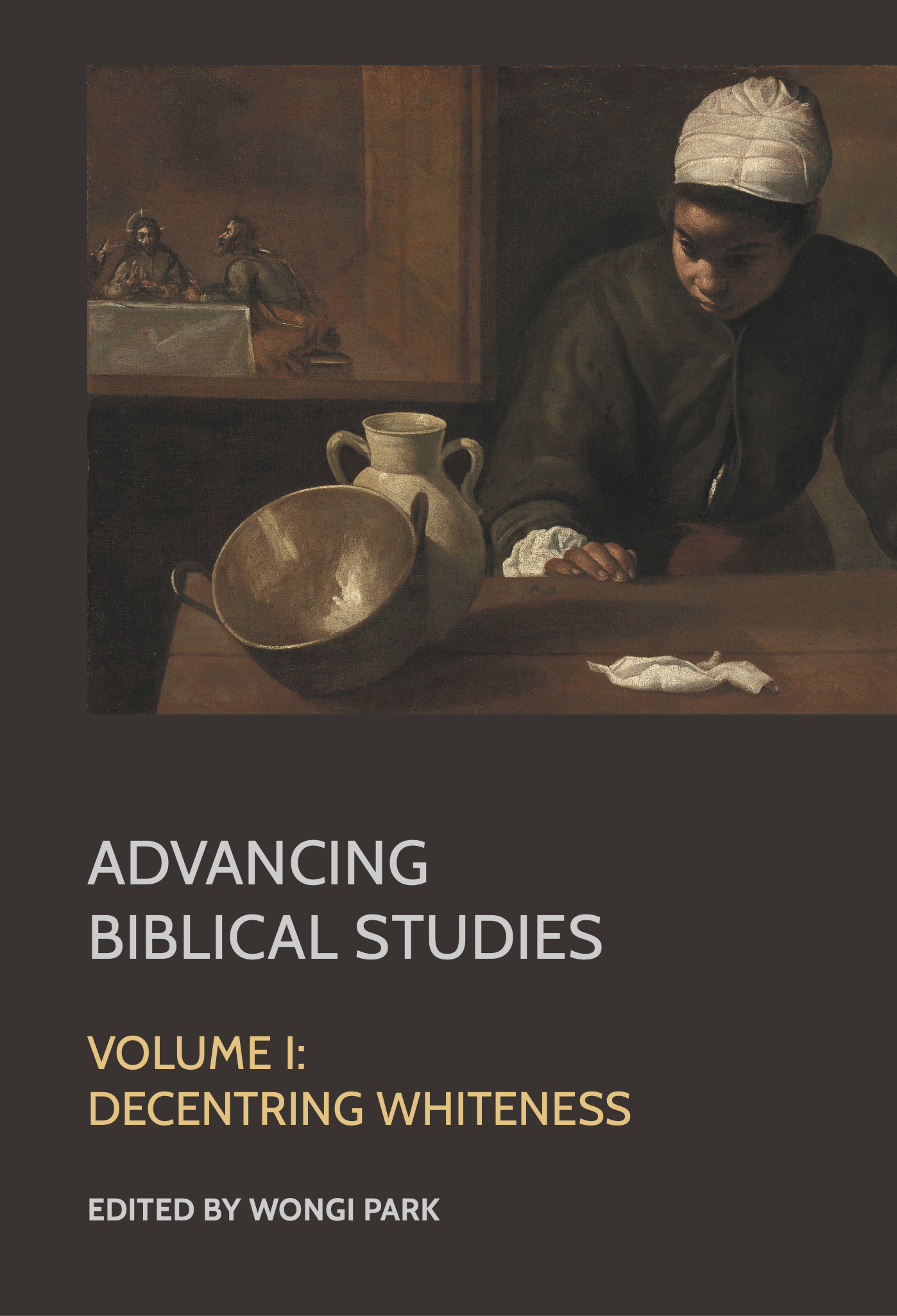
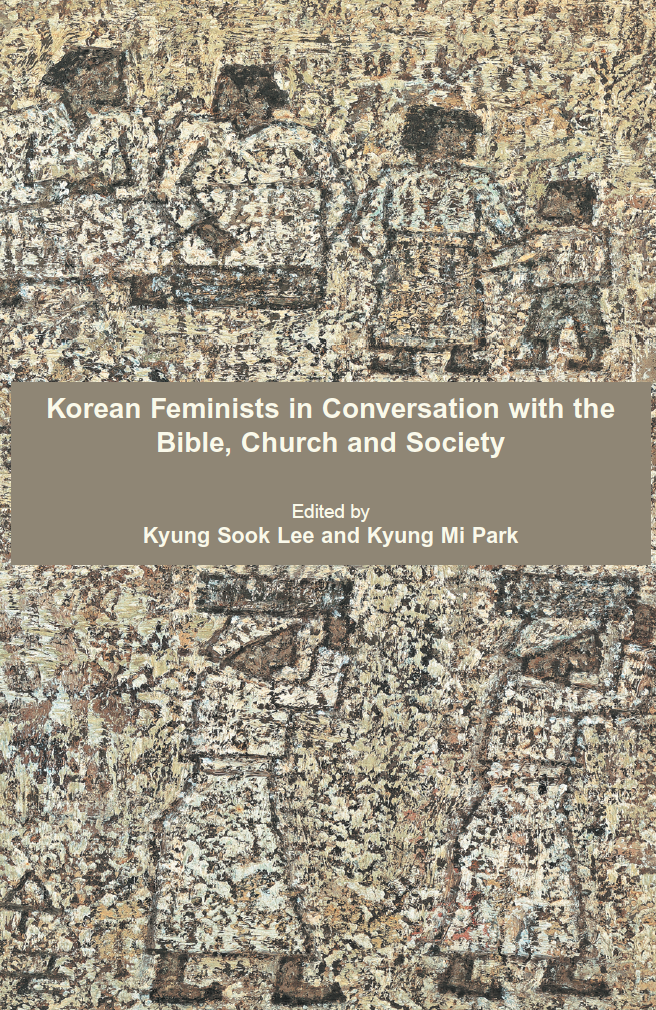
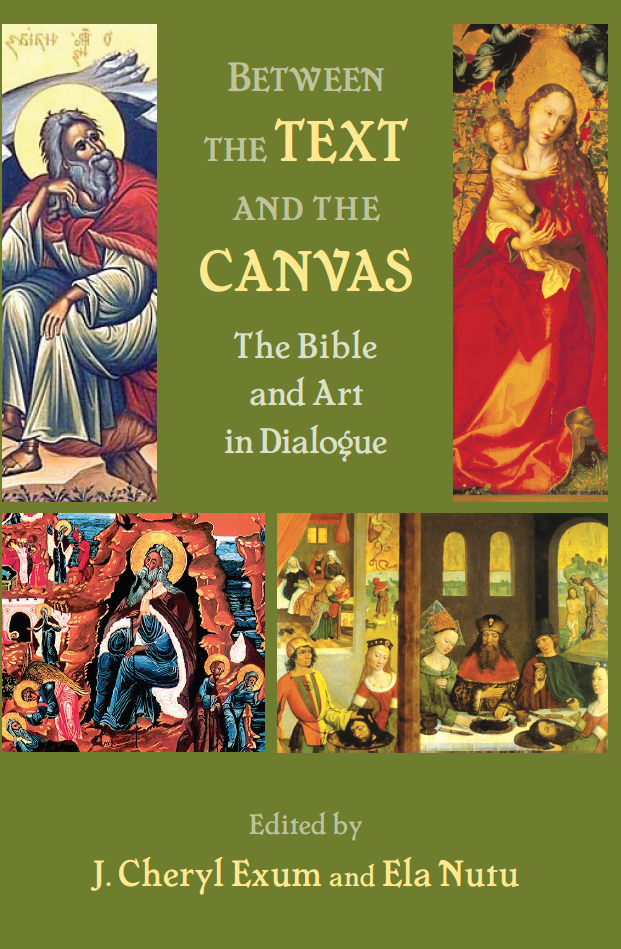
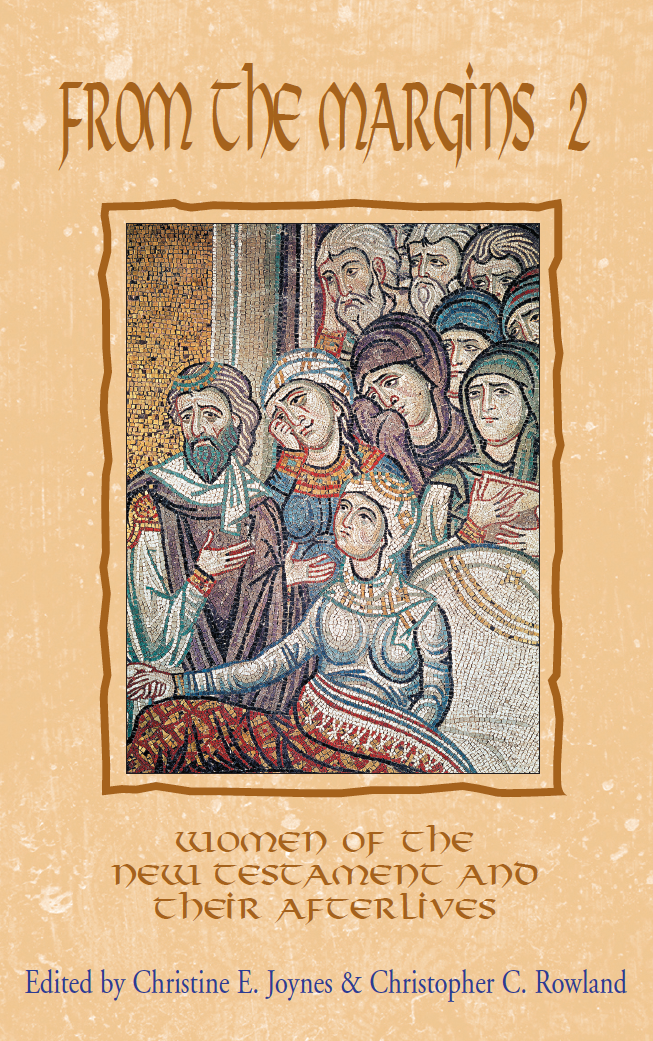
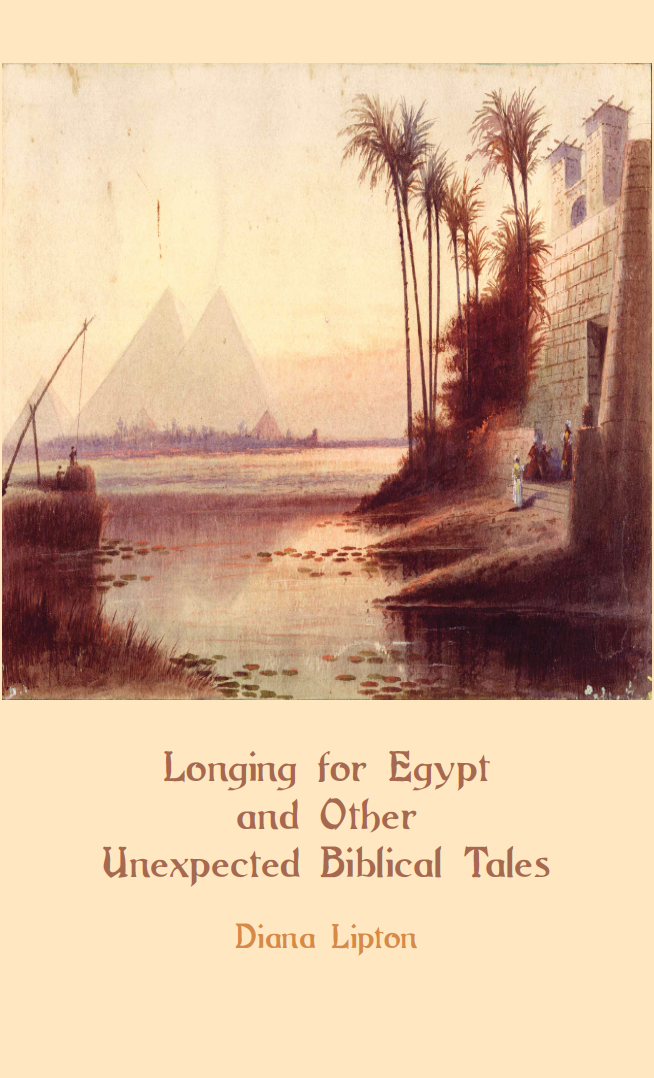

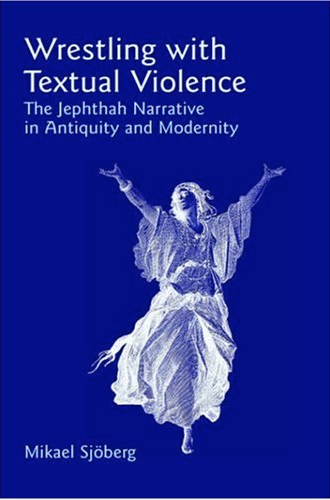
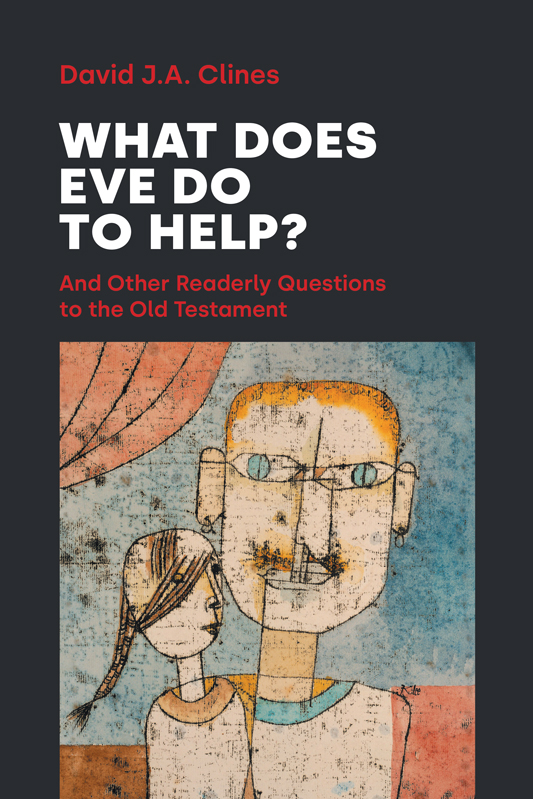
Isaiah
Isaiah